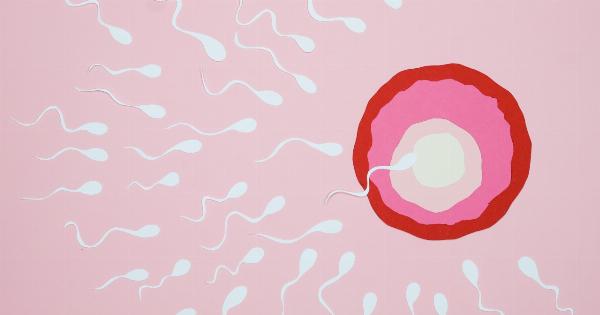IVF (in vitro fertilization) is a widely used assisted reproductive technology that helps couples struggling with infertility to conceive a child.
One important factor that affects the success of IVF treatment is the choice between using fresh or frozen embryos. Many couples and medical professionals alike wonder if there is any difference in success rates between the two options. In recent years, several studies have examined this question, and the findings are quite intriguing.
The Advantages of Fresh Embryos
When it comes to IVF treatment, fresh embryos are considered by some to be the superior choice.
Fresh embryos are typically transferred to the uterus within a few days of being fertilized, while the woman’s body is going through the natural ovulation cycle. This synchronization is thought to optimize the chances of successful implantation and pregnancy.
The Benefits of Frozen Embryos
Frozen embryos, on the other hand, offer their own advantages. Embryos can be frozen immediately after they are created, allowing couples to store them for future use.
This is particularly beneficial for individuals who may not be emotionally or financially ready to undergo a fresh IVF cycle at the time of embryo creation. Additionally, using frozen embryos eliminates the need for ovarian stimulation and egg retrieval, which can be physically and emotionally demanding processes.
What the Research Says
A number of studies have investigated whether there is a difference in success rates between fresh and frozen embryos. One notable study published in the New England Journal of Medicine in 2018 followed over 2,100 women undergoing IVF treatment.
The researchers randomly assigned the women to receive either a transfer of a fresh embryo or a transfer of a frozen embryo. The study found that there was no statistically significant difference in live birth rates between the two groups.
Another study published in the Journal of the American Medical Association in 2019 analyzed data from over 11,000 IVF cycles. The researchers compared outcomes between transfers of fresh embryos and transfers of frozen embryos.
They concluded that there was no substantial difference in live birth rates between the two groups.
These findings are in line with several other studies conducted around the world. Overall, the accumulating evidence suggests that there is no significant difference in success rates between fresh and frozen embryos.
The Possible Explanations
Researchers have proposed several explanations for why there may be no difference in success rates between fresh and frozen embryos. One theory is that the freezing and thawing process does not significantly affect the viability of the embryos.
Improvements in cryopreservation techniques over the years may have reduced the potential damage to embryos during freezing and thawing.
Another possible explanation is the ability to perform preimplantation genetic testing (PGT) on frozen embryos. PGT allows for the screening of embryos for genetic abnormalities before they are transferred to the uterus.
This screening process may increase the chances of a successful pregnancy, regardless of whether the embryos are fresh or frozen.
Considerations for Individual Cases
While the research suggests no significant difference in success rates between fresh and frozen embryos, it is important to consider individual circumstances when making a decision.
Factors such as the woman’s age, the quality of the embryos, and the presence of any underlying fertility issues should all be taken into account.
For older women or those with known fertility issues, it may be advisable to opt for a fresh embryo transfer, as the chances of success may be slightly higher.
On the other hand, individuals who prioritize flexibility in timing or wish to undergo preimplantation genetic testing may find frozen embryos to be a better option.
Ongoing Research
Despite the existing studies, there is still ongoing research in the field of IVF success rates.
Researchers continue to explore potential differences between fresh and frozen embryos, looking into various factors such as embryo quality, uterine receptivity, and long-term health of the resulting children. These investigations aim to provide more insights and improve the effectiveness of IVF treatments.
Closing Thoughts
IVF is a complex and ever-evolving field, and the choice between fresh and frozen embryos is just one of the many decisions couples have to make during their fertility journey.
While current research suggests no significant difference in success rates between fresh and frozen embryos, it is important for individuals to consult with fertility specialists and consider their own unique circumstances when making a decision. The ultimate goal is to maximize the chances of a successful pregnancy and the birth of a healthy baby.





























